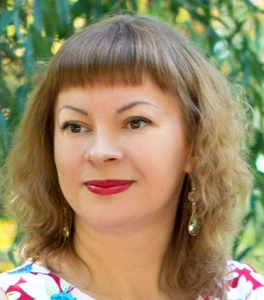Dr. Natalia Marakhovska
Mariupol State University, Masaryk University
CV: Natalia Marakhovska is an Associate Professor in the Foreign Languages Faculty at Mariupol State University, Ukraine. She has been teaching in such subject areas as Methodology of Foreign Language Teaching, Self-Management and Leadership, English for Specific/Academic Purposes and English Medium Instruction. In her PhD thesis she examined the pedagogical conditions for developing leadership qualities of pre-service teacher trainees. Her research interests include self-actualisation and leadership in teacher education, inclusion and open education. She has recently joined the Department of English Language and Literature at the Faculty of Education, Masaryk University, Czech Republic under the programme "Masaryk Helps Ukraine" aimed to support Ukrainian students, academics and their families.
Presentation title: Guided Meditation in Foreign Language Teaching of Students from War-Affected Areas
Abstract: The research is aimed at developing cognitive skills of students from war-affected areas in the process of foreign language teaching. Such learners being forcibly displaced from their localities represent a vulnerable group and need respective pedagogical support to facilitate their learning. Special focus should be given to distance education, inter alia to creating safe digital environments for internally and externally displaced students, implementing new teaching approaches, finding authentic materials and resources, and employing them beyond traditional coursebooks. During the pedagogical experiment the learning model based on guided meditation was carried out in four stages according to Piaget`s theory of cognitive development and the STAR Framework: sensorimotor (presentation of information), preoperational/symbolic (perception of information), concrete operational (information processing), formal operational/expressive (accommodation of information) and reflection (information retention). The research findings demonstrate the rationale of using sleep and meditation content for increasing students’ memory capacity and quality of vocabulary acquisition.

